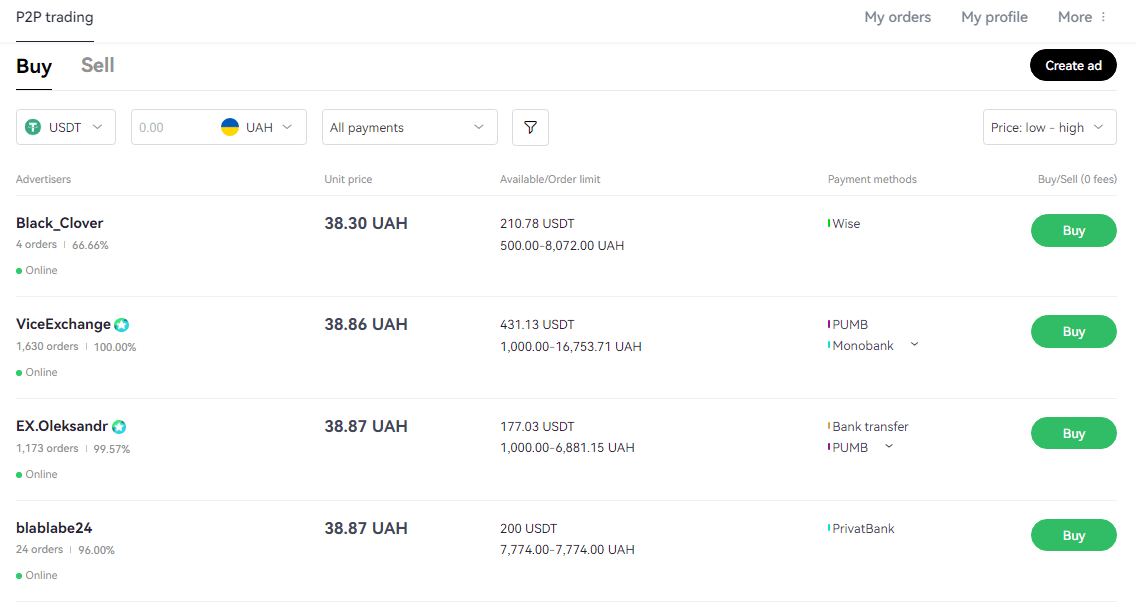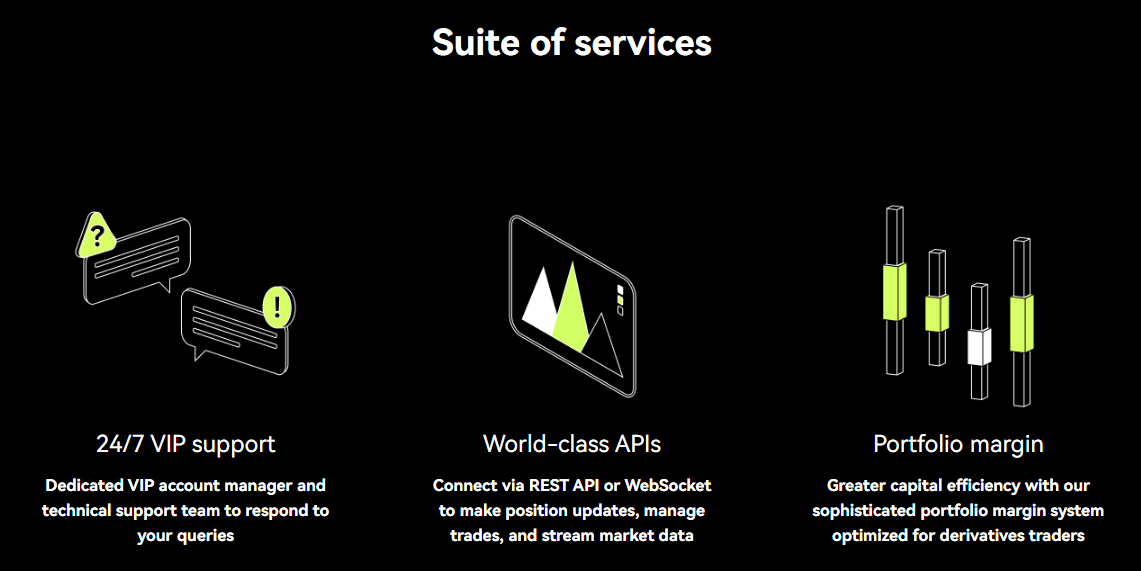P2P and OTC Trades: Key Trading Nuances to Know

Peer-to-peer (P2P) and over-the-counter (OTC) deals are gaining popularity among investors. As more users seek to conduct off-market transactions, the number of specialized trading platforms has also increased.
P2P and OTC deals are operations involving the exchange of the most liquid and popular crypto assets for fiat or other assets without intermediaries. Anyone can create a proposal to buy or sell a certain asset at a favorable rate and place it on a P2P or OTC platform. It's similar to a taker order on an exchange, but with the difference being that there is no order book, and all proposals are listed and sorted using filters. On the other hand, there are always users who find the terms acceptable and agree to the proposal. These are the takers. The trading platform always serves as the arbitrator and guarantor of P2P and OTC transactions.

A list of USDT sell offers for UAH on the P2P platform.
P2P vs OTC: Understanding the differences
What similarities do P2P and OTC markets share? The execution of both P2P and OTC transactions does not result in a considerable alteration in the worth of assets on the open market. To illustrate, the simultaneous vending of an asset worth over $100 million would lead to a substantial decrease in its value, ranging from several to tens of percent, depending on the market capitalization. Conversely, a sale of cryptocurrency with a comparable price through an OTC platform would barely register within the exchanges or market.
P2P deals are peer-to-peer operations between two traders outside the open exchange market. It is essentially an agreement between owners of different assets without intermediaries. Therefore, it is also called "person-to-person" - it is always a deal between a taker who agrees to a maker's proposal. Typically, P2P deals involve retail investors, and transaction amounts range from hundreds to tens of thousands of dollars equivalent. As a result, the entry threshold for the P2P market is low and accessible to everyone.
The OTC market is a platform exclusively for institutional players (investment funds or companies) and whales. The abbreviation OTC (over-the-counter) means off-exchange trading. The entry threshold here is high - from $100,000 equivalent and above.
Platform's Function
The platform facilitating P2P and OTC transactions provides hosting and arbitration services, uniting makers and takers while furnishing them with comprehensive support throughout the exchange process. Should a participant raise a complaint against their counterparty, they can seek the platform's adjudication, which utilizes effective tools to redress the issue.
For instance, during a sale transaction, the platform locks the cryptocurrency until the seller receives payment from the buyer and confirms the receipt (seller protection). Only after that, the platform unlocks the assets and credits them to the buyer's wallet.
A decade ago, P2P and OTC deals were solely executed on specialized platforms like the now-defunct LocalBitcoins. However, at present, most CEX exchanges have established their own analogous platforms. This has led to assets being transferable between various markets through a single account, rendering it highly convenient for users.
In exchange for their services, platforms levy a modest fee for each transaction, typically no more than 1%. Nonetheless, there are some platforms, such as Bitcoin Global, that offer to facilitate P2P transactions without any commission whatsoever.
P2P Trading Nuances
When seeking out P2P transactions with the most favorable terms, one should not solely focus on the highest exchange rate and limits, but also on payment options. For instance, SWIFT, SEPA, or interbank transfers may take several hours up to several days to process. However, opting for a local bank where the investor has an existing account and payment card will considerably shorten the waiting time for fund transfers. In an ideal scenario, the waiting period should be just a few minutes.
Choosing a conscientious and responsible counterparty is crucial. Therefore, when selecting a maker, it is worth considering all the characteristics and indicators of their account, such as:
- The age of the account - the longer it exists, the better. Accounts that have been created only a few days ago, without feedback and completed transactions, are better to be avoided;
- The status of the account - whether it has been verified by the platform or not. Accounts that have not undergone the KYC process should be approached with caution. Anonymous makers may try to engage in fraudulent schemes. It is especially important to be careful if there are no positive reviews;
- The number and percentage of successfully completed transactions. The higher the rate, the better the maker's reputation. Conversely, a percentage of completed transactions significantly lower than 100% suggests that the account owner is not always punctual in making payments within the specified timeframe;
- The transaction time - the shorter the time (15-30 minutes), the more disciplined and responsible the counterparty is. On the other hand, a transaction time of over 60-90 minutes indicates that the account owner is not in a hurry to make the payment and therefore, it may take a long time to wait for the funds to be credited;
- Percentage of positive feedback - the higher, the better. Sometimes it can be useful to review negative feedback to understand the issues experienced by other users. This can aid in deciding whether it is prudent to take the risk and tread the same path as others.
OTC Trading Nuances
When making OTC deals, the partner's name and reputation are of paramount importance. Often, funds with a well-known brand, offering a lower exchange rate, close more deals than lesser-known institutions with a higher exchange rate. This market operates based on the principle that "your reputation precedes you" and can work in your favor if you establish a good name for yourself.
Virtually all of the preeminent centralized cryptocurrency exchanges (such as Binance, OKX, Huobi, and the like) have forged OTC platforms and have entered the fray to vie for the allegiance of whales. These cryptocurrency bourses entice VIP patrons with their deluxe amenities, whereby the most zealous and steadfast high-net-worth individuals receive 24/7 bespoke support and a dedicated account manager.

Benefits provided by CEX exchanges to lure investors into joining their OTC platforms.
Lessons learned
Conducting P2P or OTC transactions via specialized platforms offered by reputable market players with positive standing guarantees seamless operations and tranquility for cryptocurrency investors. Such platforms, acting as guarantors and arbitrators, are motivated to achieve mutually beneficial resolutions of problematic situations, thereby upholding their high reputation.
Now, if your buddy suggests making an OTC deal through a no-name hedge fund that doesn't operate through OTC platforms, it could put your assets at significant risk or even lead to acquiring some "dirty" crypto. So, it's best to stick with reputable players and leave the shady deals to the amateurs.
Recommended

